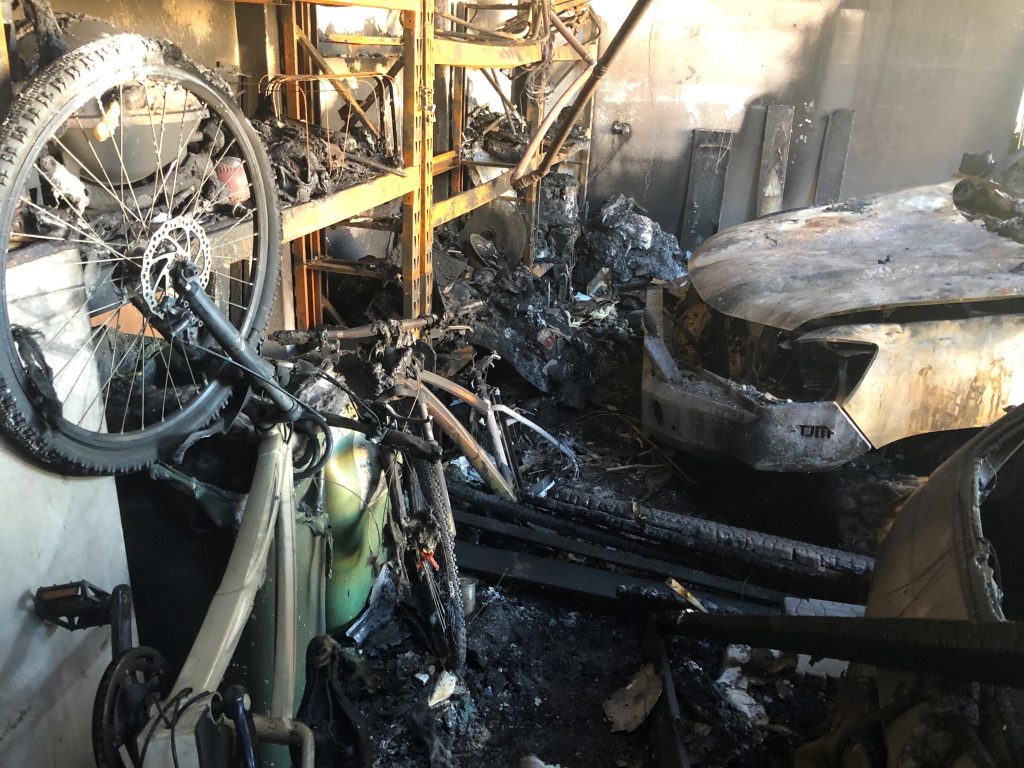Lithium-ion batteries – we all have them, but the risk of them exploding is serious and real, says Safety Cabinets Director Bruce Watkins

A PCBU (person conducting a business or undertaking) must be proactive and keep a safe workplace. Know that there is a risk but do nothing about it and WorkSafe will vigorously investigate to prove the PCBU guilty, should there be an incident. Huge fines and even prison time can be imposed.
But a PCBU does not go to work fined. They need to know what to expect. In the case of lithium-ion batteries, a PCBU should know the dangers of them exploding, for if they do nothing and someone is hurt, the PCBU will be liable.
Last year, ABC reported a Western Australia resident’s garage catching fire, started by an old e-bike battery.
ABC says the batteries sparked more than 50 fires in Western Australia last year and as the sales of cordless vacuums, e-bikes and scooters, laptops and power tools rise, so does the number of house fires.
Peter Jones, Manager of the Fire Investigation and Analysis Unit at the Department of Fire and Emergency Services (DFES), explains to the ABC that it is extremely difficult to put these fires out with water.
“Some of the gases given off are really quite toxic and explosive as well.”
When a battery faults or overheats, it can shoot debris 5-10 metres away, he says.
“People don’t really understand the risk until they’ve been exposed to it first-hand unfortunately. A battery can cause a fire that would affect your whole house.”
Consumer Protection WA Commissioner Gary Newcombe advises against leaving devices charging overnight, particularly in the house or the garage. Batteries should be charged outside, away from flammable items and not in direct sunlight as they can overheat.
However, DFES investigation officer Mark Hayes says lithium-ion batteries don’t need to be on charge in order to fail and can fail at any time without notice.
The New York Times reported that lithium battery fires have killed 13 people so far this year in New York, including four people in a blaze that started in an e-bike store.
There are many stories of damage caused by exploding lithium-ion batteries and often there are cases of insurance companies that will not insure the likes of golf clubs until they remove the lithium-ion charging golf carts.
But while they may not cover damages caused by lithium-ion batteries in some cases, they may cover your Hazardous Mitigation Cabinet or Charging Cabinet if it saved a $10 million building from being destroyed, for instance.
The Safety Cabinet Warehouse have invented a range of Hazardous Mitigation Cabinets with cooling fans to reduce the heat produced from charging batteries down to around 15 degrees C.
The Charging Cabinet is designed to contain an explosion for when the batteries decide to explode. The cabinet has power sockets inside to plug in your battery charger to safely charge the Lithium-ion batteries, 1260-degree proof insulated walls and shelves which compartmentalise the batteries to mitigate the spread of exploding batteries to other batteries being charged in the same cabinet.
Batteries that explode in the middle of the night just keep emitting flames from around 500 degrees to over 1000 degrees. According to the fire department, a dwelling would normally be completely destroyed at around 600 – 800 degrees C. The smoke that comes off exploding batteries is also very toxic.
There seems to be no discrimination for one brand of battery responsible for more explosions than another, nor whether the battery is from a drill, an RF scanner or a rechargeable torch.
If a battery being charged is submitted to over-charging or is simply faulty, it heats up. It is particularly vulnerable when overcharging, then high temperatures cause a thermal runaway event, then the battery violently explodes shooting flames in the air for up to an hour.
An exploding lithium battery is extremely difficult extinguish as it is fuelled by energy – it cannot be just smothered in water or CO2. In fact, a lithium-ion battery will keep going even under water until it is spent, but even then it can have a runaway event where it gathers up the unspent energy and starts up again with a second explosion which, could be an hour or more after the first explosion.
This is serious and something every PCBU should be prepared for.




